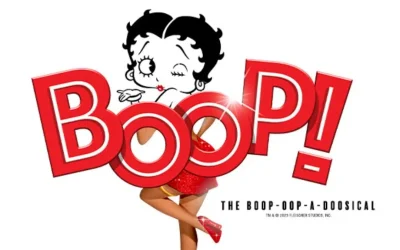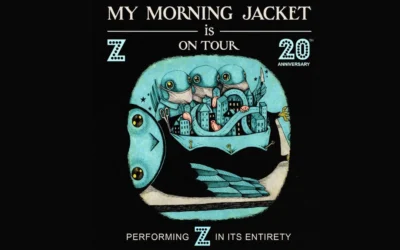A few years ago, my husband and business partner returned from a networking meeting charged up about what he called “Facebook Bucks.” He’d spoken with a leading credit card loyalty program provider, who was in early discussions with Facebook about moving their stream of commerce and points-based purchases to the social media giant. He’s a true visionary, and he said, “This is where it’s going. People are going to spend billions in that environment within the scope of several years.”
It was at least a year later that we launched our Facebook Ticketing application that allowed for ticketing sales to happen on Facebook — not a link, or an iFrame, but an application, like Farmville — that is fully branded to the company, directly interfaced with the ticketing system, and secured. We watched with interest as other companies scrambled to launch their own version, and chuckled a little when Ticketmaster, the venerable ticketing giant, announced their version at INTIX this past January 2012.
So now what? Honestly, not that much is going on with solid numbers of ticketing purchases on Facebook. Yet, it’s as if those who find engagement difficult are holding their breath to see what will happen.
The questions I am asked frequently are, “What are the stats? Is this working? Are people really buying tickets on Facebook instead of the ‘real’ internet?”
This is one Facebook article that’s not going to tell you how many users are on Facebook worldwide. Or that it’s really powerful to have users sharing deals they just got. Or that social ticketing is about seeing where your friends (or enemies, depending on your quick choice on security settings) are sitting (I personally find that part a little creepy, but that’s another article…). Yawn.
But I will say this; very big companies who sell tickets worldwide are talking to a ticketing company in Mesa, Arizona nearly every day because they know what my husband knew several years ago: Facebook Commerce is the future of internet commerce and it’s a perfect match for their product — a live event experience.
Here’s why ticketing on Facebook is so different from J.C. Penney selling jeans:
In ticketing, your product is an experience. Whether it’s a kids’ show, concert, opera, or auto-race — attending a live event of your choice is exciting. You have to talk about it. You’re going to share it. And you do that primarily on the mother ship of social connection — Facebook.
It’s simple to understand that when you have an engaged fan who likes a page — whether it’s a favorite venue, artist, or promoter — finding out about the event and being able to make several clicks within that same environment — right now, right here — is a no-brainer for selling tickets.
The recent news about several retailers, such as Gap, Nordstrom, and J.C. Penney, closing down their Facebook stores had the naysayers of Facebook Commerce all abuzz with “See? Facebook Commerce is fading already!”
While I know the approach of those retailers says nothing about our market’s effective use of Facebook Commerce, I checked in with Jay Feitlinger, co-founder of Facebook social commerce app ShopTab . Feitlinger states that social commerce is not dead and if anything, is getting ready to become huge.
Feitlinger told me that “companies who don’t create a strategy on how best to engage with consumers where they are currently at (Facebook) are missing significant opportunity. Creating a social community starts by understanding that the traditional ‘ticketing – customer’ relationship, as it exists online, is very different on Facebook. It can’t be about just selling tickets, but rather, about engaging with consumers who may be interested in your event. Earn that fan and you have the opportunity to not only earn a customer for life but also grow your brand through their word of mouth efforts.”
Offering an entire inventory of stuff online — jeans, T-shirts, shoes — is clearly the misstep made by the companies mentioned above, but these types of merchandise are missing what we in event ticketing have to offer. They are selling Stuff. We are selling Excitement. Experience. And that’s what people share. I got a new pair of jeans. Boring. But I just bought tickets for the Electric Daisy Carnival in Vegas? That’s going to get shared. And shared. And shared again.
Doubting the sharing power of Experience versus Stuff? Check out this tweet below — my 19-year old technology-driven college student just sold her iPad (stuff) to attend Electronic Daisy Carnival (EDC) this summer (experience). And then shared it.
Should you be a little worried if you’re not already offering tickets on Facebook? Probably. But following the J.C.Penney model won’t work. Success will be there for the socially engaged — you’ve got something people love to talk about — but you’ve got to put it in the right place. Jay Feitlinger is exactly right. First, engage. And then sell.
That’s why the companies who put the Facebook applications where engagement takes place — Artists, Venues, and Promoters Fan Pages — will be the winners. Everyone else should be very afraid.
Lynne King Smith is the CEO of TicketForce, LLC, a company that utilizes a powerful web-based ticketing system to provide venues, promoters, festivals, arenas and civic centers with a fully-customizable solution for full-service ticketing and box office management. TicketForce serves as a technology partner for its customers, enabling sales through integration with Internet sales, Box Offices, and Call Centers. TicketForce provides a complete suite of scalable products and services, including print-at-home ticketing, electronic will-call, access control, payment processing, management tools, and real-time reporting.



